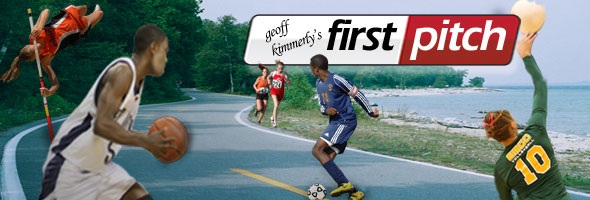
Things change; lessons are the same
February 29, 2012
Let's start with the obvious: High school sports have evolved a bit since 1927.
But the MHSAA Bulletin from March of that year -- dug up by one of our directors on another research pursuit -- reminds us how some of our challenges remain the same.
Below are a few excerpts from the section titled "Baseball and Sportsmanship." Keep in mind, baseball was the football and basketball of the first half of the 1900s. The 1927 New York Yankees arguably were the greatest baseball team of all-time, finishing 110-44 thanks to Babe Ruth, Lou Gehrig and others.
Those names alone make us think in a historical context -- which makes the parallel between today and the following that much more intriguing:
Baseball games furnish a difficult problem to schools in the matter of sportsmanship, spectator control and their education.
Many more people are familiar with the game of baseball and its rules than is true of either football or basketball. Consequently, they feel even more qualified to criticize.
In many places, absence of seating facilities bring the spectators into close proximity to players with the result that criticism of players and of the official and sometimes abusive remarks to the visiting team can occur. No school can hope to improve this situation by ignoring it.
The MHSAA Bulletin went on to cite suggestions for improvement that had been published by the Delaware association. Again, a sampling:
Treat the visiting team as guests, not as deadly enemies. Small youngsters often offend through ignorance. Educate them along this line.
Fair and impartial applause of good plays by either side should be encouraged in the student body, and the outside fans will soon fall in line.
"Razzing" or "riding" visiting players is poor sportsmanship.
Caution your boys to pay no attention to the "grandstand experts" who feel it their duty to offer suggestions as to the work of the team. They can sometimes do more harm in an hour than can be overcome in days of practice.
And a final note from the 1927 MHSAA on the subject:
An athletic contest properly staged and handled creates a favorable impression on the part of visitors toward your school and community. A game that deteriorates into a backyard squabble hurts not only the school and its executives, but the town as well.

UP Power
November 29, 2016
About five hours after leaving the Michigan High School Athletic Association office building late in October, I pulled into the parking lot of Munising High School on the edge of Lake Superior. It was just after 7 p.m. on this Thursday evening, I saw that there were many cars in the parking lot, and I guessed that there was a high school volleyball game about to be played.
Indeed. It was the last regular season match of the season, and senior night. I was greeted warmly by the match referee and the school's two veteran administrators. And one of Munising's senior players, a member of the MHSAA Student Advisory Council, interrupted her warmups to jog over to welcome me. After the match, we hugged and posed for pictures together. Between the greeting and the posing, I enjoyed a marvelous evening of educational athletics.
There was plenty of cheering, and never a "boo." Not once did I hear a complaint about officiating. In fact, on two occasions the Munising coach corrected officials' calls that resulted in a point being awarded to his opponent.
For a time, every player on the floor for Munising had played more than one sport that season. Every one of the six played tennis as well as volleyball, and one of them also ran cross country this season. At the same time, the other team's participants included two girls who were also playing on their school's 8-player football team this past season.
Here the multi-sport student-athlete is not an endangered species; it's an essential fact of life. Here a school sports event draws the community together in good spirit and sportsmanship. Here is the power of school sports.

